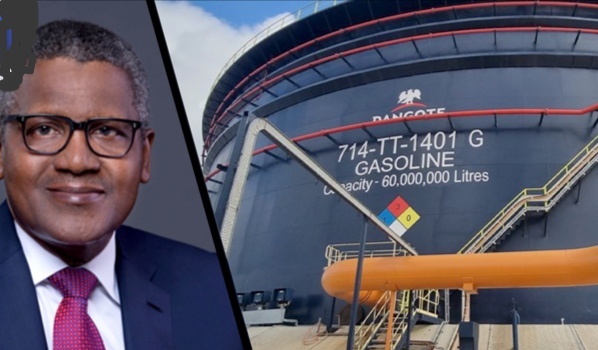Business
‘Dangote Refinery’s petrol unit faces months-long shutdown’

Nigeria’s massive Dangote refinery may see its petrol unit remain offline for as long as three months due to repair needs, according to industry monitor IIR Energy.
The development could tighten global fuel supplies, Reuters reported on Thursday.
The unit, which has been down since August 29 following catalyst leaks, was initially expected to restart on September 20. However, IIR Energy told clients Thursday that extensive repairs and equipment replacements could prolong the shutdown of the 204,000-barrel-per-day Residue Fluidized Catalytic Cracking Unit (RFCCU).
Reuters had reported earlier that the RFCCU would be out of service for at least two weeks. Dangote has yet to respond to requests for comment.
READ ALSO:How 6 foreigners almost duped Dangote $50m -IGP
One gasoline trader noted that the outage adds pressure to an already strong market.“This just adds fuel to the fire,” the trader said.
The impact is already showing in price movements. U.S. gasoline futures crack spreads have jumped nearly 13% this week, hitting their highest point since August 19. In Northwest Europe, profit margins climbed about 23% to $19.31 as of Wednesday, the strongest level since late June, according to LSEG data.
Supply concerns, driven by ongoing and upcoming outages, are proving strong enough to counteract what would normally be a seasonal decline in demand, said Philip Jones-Lux, senior analyst at Sparta Commodities.
Since beginning crude processing in January 2024, the 650,000-barrel-per-day Dangote refinery has already reshaped global fuel flows. Exports of gasoline from the EU and UK to Nigeria dropped from around 200,000 barrels per day in 2024 to roughly 120,000 barrels per day in the first half of this year, Kpler data shows.
The refinery has also reached a key milestone by shipping two gasoline cargoes to the U.S. East Coast, expected to land in New York later this month. Industry observers have been watching closely to see if the plant could meet U.S. fuel standards.






















